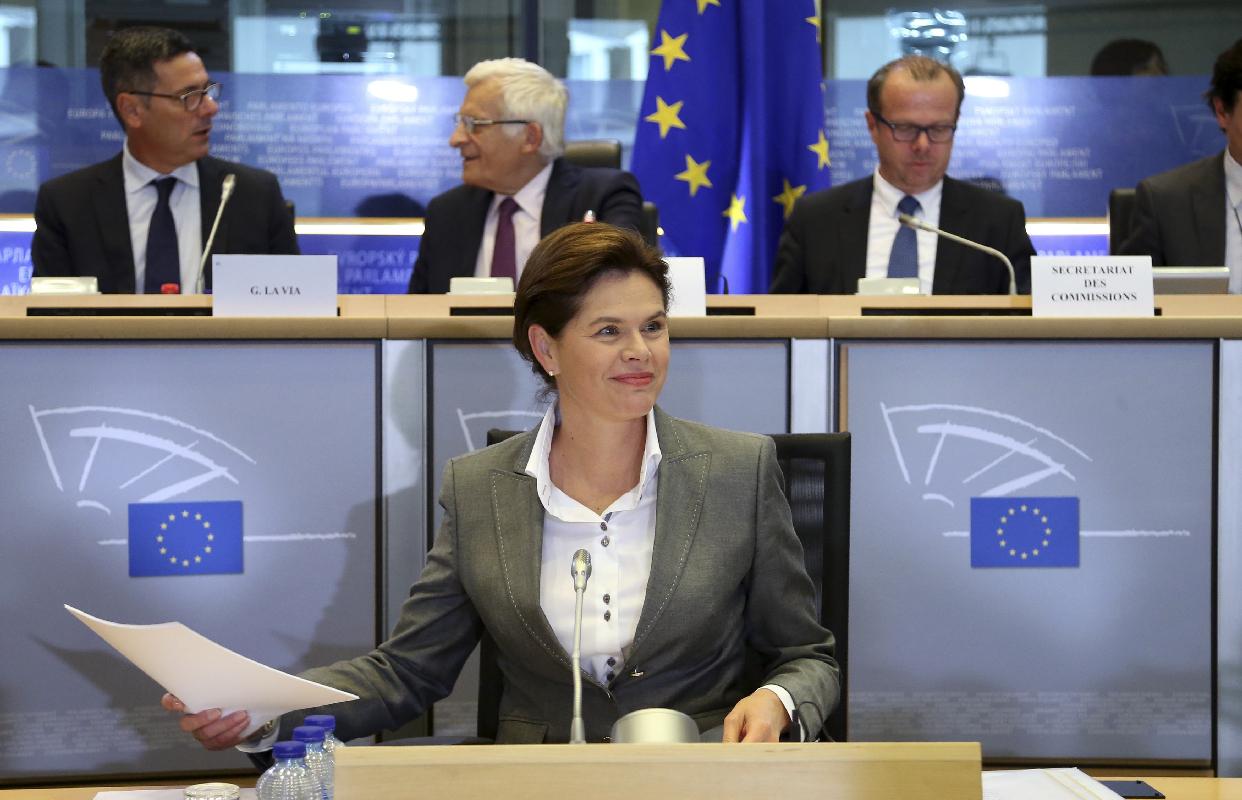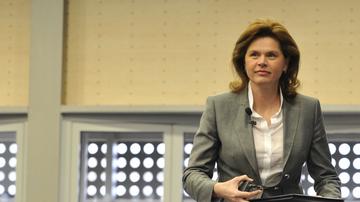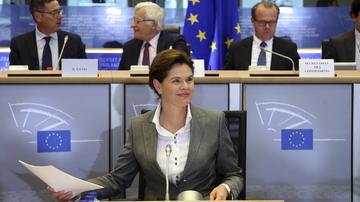
Alenka Bratušek, the former Slovenian prime minister chosen by Juncker to be his vice president for energy union, had looked set for a fall since a stumbling performance in a confirmation hearing on Monday. As a centrist who lacked the backing of her own government since she had nominated herself while caretaker prime minister after losing an election, she also fell victim to efforts by the main right and left parties in Brussels to share out key posts.
112 deputies voted against Alenka Bratušek, 13 were in favor, and two abstained.
Angering the Greens and other smaller parties who accused the centre-right and centre-left of cooking up a backroom deal, the same committee meeting that found Bratušek unfit to serve on the Commission by a margin of about ten to one also approved the nomination of the controversial Spanish conservative Juncker has proposed as commissioner for energy and climate change. Miguel Arias Canete was initially blocked last week by the centre-left, which shared Greens concerns about his family ties to the oil industry. But lawmakers who attended the closed-door meeting on Wednesday said Canete was confirmed for the post by 77 votes to 48.
There was no comment from Juncker after Bratusek's rejection. Lawmakers have said that the government in Ljubljana, which replaced Bratusek's administration in the summer, could nominate another woman, this time from its own centre-left party, to replace her on the Commission. Having just met a target for the number of women on his team, Juncker is likely to press Slovenia to name another in Bratusek's place. A likely choice may be European member of parliament Tanja Fajon.
It is unlikely the new Slovenian would be offered her role as vice president for energy union, leaving Juncker's final line-up unclear. He is expected to meet parliamentary leaders, including speaker Martin Schulz of the S&D, on Thursday.
The legislature can only accept or reject the Commission as a whole, in a vote scheduled for Oct. 22. But by showing their disapproval of individual nominees, parliamentary committees can pressure Juncker to change his line-up or their portfolios.
Reuters































































